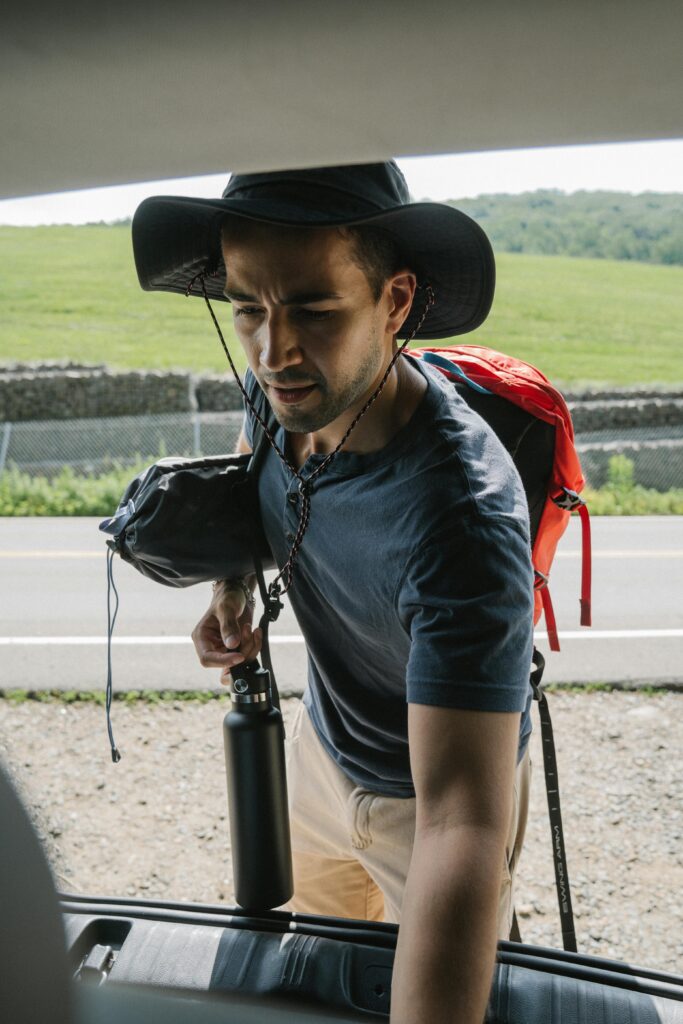1. Pack Light but Smart
- Clothing: Opt for lightweight, breathable clothing in neutral colors like khaki, beige, and olive green. These colors blend well with the environment and won’t attract insects.
- Layer Up: Mornings and evenings can be cool, so bring layers. A light jacket or fleece is ideal.
- Accessories: A wide-brimmed hat, sunglasses, and a scarf to protect against dust are essential.
2. Footwear
- Comfortable Shoes: Sturdy, comfortable walking shoes or boots are a must for game drives and walking safaris.
- Sandals: Pack a pair of sandals for relaxing at your lodge or camp.
3. Health Precautions
- Vaccinations: Ensure your vaccinations are up to date. Common ones include Hepatitis A and B, Typhoid, and Yellow Fever.
- Malaria Prophylaxis: Consult with a healthcare provider about taking antimalarial medication, and use insect repellent containing DEET.
- First Aid Kit: Carry a basic first aid kit with essentials like band-aids, antiseptic wipes, and any personal medications.
4. Stay Hydrated
- Water: Bring a reusable water bottle. Drink plenty of water to stay hydrated, especially in hot climates.
5. Photography Gear
- Camera: A good camera with a zoom lens is recommended for capturing wildlife.
- Accessories: Don’t forget extra memory cards, batteries, and a dust-proof bag for your gear.
6. Binoculars
- Bring a pair of binoculars to enhance your wildlife viewing experience.
7. Respect Wildlife and Nature
- Keep Distance: Always keep a safe distance from animals.
- Silence: Speak in low tones and minimize noise to avoid startling wildlife.
- No Feeding: Do not feed the animals; it disrupts their natural behavior.
8. Stay Safe
- Listen to Guides: Always follow the instructions of your safari guides.
- Avoid Night Walking: Stay within designated areas after dark.
9. Eco-Friendly Practices
- Leave No Trace: Dispose of waste properly and avoid using single-use plastics.
- Support Local: Purchase souvenirs from local artisans to support the local economy.
10. Travel Insurance
- Make sure your travel insurance covers safari activities, including medical evacuation.
11. Plan for Connectivity
- Offline Maps: Download maps and essential information before your trip, as internet connectivity can be unreliable.
- Power Bank: Carry a power bank to keep your devices charged.
12. Cultural Sensitivity
- Learn Local Customs: Familiarize yourself with local customs and traditions to show respect for the communities you visit.
Happy travels!


